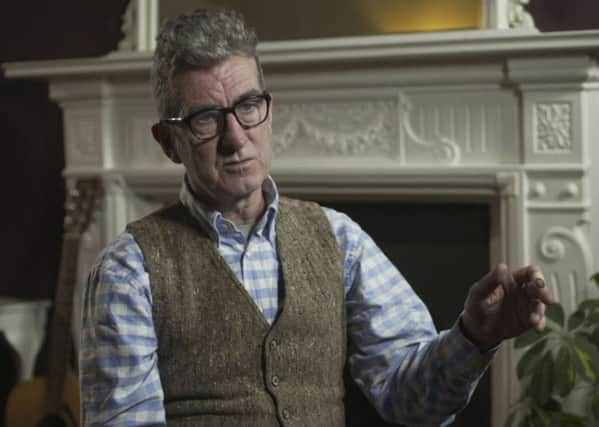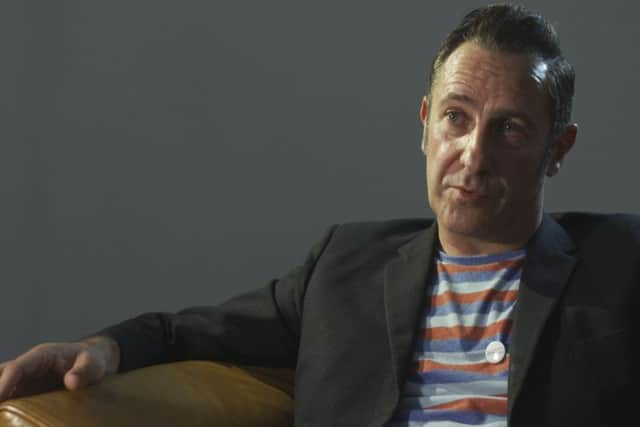Documentary explores birth of Edinburgh indie scene


Punk’s Year Zero effect upon all popular alternative music made since the late 1970s has been well documented, usually by those who are nostalgic for the era. Yet a Scottish film set to debut at this month’s Edinburgh International Film Festival makes the case that the indie scene which swept the final quarter of the 20th century in the UK and beyond had altogether different origins – in Scotland, and specifically Edinburgh.
The main thrust of Big Gold Dream: Scottish Post-Punk And Infiltrating The Mainstream 1977-82 is a simple celebration of a time which many chroniclers of pop and rock history have let slide from memory, that period when various musicians, promoters and label-owners formed a vibrant scene which cultivated bands such as The Scars, Fire Engines, Josef K and The Associates. Some, like The Associates, would go on to national success, while the others inspired aficionados of DIY culture.
Advertisement
Hide AdAt the heart of the story is Bob Last, the shoebox entrepreneur who – alongside his partner Hilary Morrison – ran the record label Fast Product from the bedroom of his tenement flat near Edinburgh College of Art. Started in late 1977, Fast Product predated Alan Horne’s better-known, Glasgow-based Postcard Records (home to Edwyn Collins’ Orange Juice) by two years, not to mention further seminal names of the same era like Tony Wilson’s Factory Records in Manchester and Alan McGee’s Glasgow-founded Creation.


“Indie music pretty much originated in Scotland between Fast and Postcard,” says the film’s director Grant McPhee. “That’s a wide-reaching legacy. It’s the start of what became Britpop, with so-called indie bands making it to number one in the charts.”
Originally from Fife and a camera operator by trade, whose credits include the television series Outlander and Game Of Thrones and the film World War Z, McPhee had been intrigued by the idea of a filmic history of Postcard. The idea came to him a decade ago, and he would later mention it to Edinburgh musician Mani Shoniwa, for whose label he would shoot promo films.
“Mani told me he knew Malcolm Ross and that I should speak to him,” says McPhee, referring to the Josef K guitarist (although they were from Edinburgh, the group signed for Postcard) who later played with Orange Juice and Aztec Camera. “I went along to meet Malcolm, asked about his background, and one of the first things he said was, ‘You have to feature The Scars’. They were a band I’d never heard of, so I went off to find out more and it led me to a whole area of music I was unaware of, which was the Fast Product scene – Fire Engines, Boots For Dancing, and so on. It was great music, and I wanted other people to find out about it as well.”
Some of these band were on the Fast subsidiary Pop Aural; the parent label was more well-known for pressing the earliest releases by artists like Human League, Joy Division and Gang of Four, as well as the withering parodies of consumer culture on its sleeves.
Former Josef K manager Allan Campbell played a key role in the Edinburgh music scene of the time, having also managed the Delmonts and founded his own label, Rational Records, as well as promoting local gigs (including The Associates’ first ever show) at the 100-capacity Aquarius on Grindlay Street and booking groups including Orange Juice, Aztec Camera, The Fall, Teardrop Explodes, New Order and Echo and the Bunnymen at Valentino’s. “It was quite an idealistic period and I had a view of myself as a serious promoter,” says the then-teacher, who now works for the BBC, “so I’d only book bands whose music I really loved, rather than thinking about things financially. I’d also book bands directly through friends’ recommendations rather than going to their agents, which was a different ethos to the present day.”
Advertisement
Hide AdA member of the Hamilton-formed post-punk group Article 58 and later manager of Fire Engines and head of the Creeping Bent label, Douglas MacIntyre remembers Edinburgh as being the destination of choice for young, provincial musicians in those days, rather than Glasgow. It was all centred around the Art College,” he says. “Bob Last’s flat was there, Valentino’s was just down the road, and the Tap o’ Lauriston was there too; that was a really cool pub to play.” He notes that the punk scene in Scotland had thrived in Edinburgh first.
Campbell says: “It was a time when you felt you were hearing music that just hadn’t been heard before. One night at the Aquarius I bumped into a guy who had come down from Dundee to live in Edinburgh and who was in a band – it was Alan Rankine from The Associates. I put them on, only 50 people turned up, Billy MacKenzie was wearing an electric green suit and the drummer had to be home by 10pm, but it was a great gig. Through naïve idealism you’d put new bands on and see if people came. Sometimes they did, sometimes they didn’t, but the bands grew from that. It was word of mouth –all this was happening on our doorstep, and we had been used to thinking it should only happen in London or America.”
Advertisement
Hide AdFrom McPhee’s removed perspective, it appears as though Edinburgh is as much a character in this story as any of the players, with a certain sense of grittiness emphasised by the location. “We’ve got so many archive photos and footage,” he says, “and the way Edinburgh looked in the early 18th century probably wasn’t that different to the late 70s. Very gothic, very dark, very gritty. A lot of that was probably down to technical reasons, because most of the film we’ve got was shot at nighttime so it looks grainy. But from speaking to a lot of people, that’s what the atmosphere was like, and it certainly influenced the music. What happened in New York at the same time would have been very similar – the three-day week and the Winter of Discontent over here, and almost a bankrupt city over there. It’s no surprise that the sounds coming out of both cities were very similar.”
Yet to hear MacIntyre and Campbell describe it, a typically Edinburgh sense of the highbrow also informed the Fast Product era, and a group of musicians who loved theatre, literature and continental cinema as much as the music. “There was something about the Edinburgh scene that was difficult to characterise,” says Campbell, “in that it didn’t want to be conventional. I remember Malcolm Ross saying he didn’t want to play old-fashioned R&B, he wanted to sound like New York acts like Television or Richard Hell. Or Fire Engines’ drummer Russell Burn wouldn’t use cymbals, a small thing which gave them a different sound. They’d play 15 minute sets, because it was better to play 15 minutes of excitement rather than a long, dull 90 minutes.
“Valentino’s, which I think is now a Job Centre, was like a club in New York. It had a floor which lit up and a large screen to project movies on to. Edinburgh then was what it always has been, which is quite a nice city to live in, although it was easier to live on the dole and play music then than it is now. It was about ideas and experimentation. It wasn’t always successful, but at least we tried.” n
• Big Gold Dream: Scottish Post-Punk And Infiltrating The Mainstream 1977-82 will premiere at the Filmhouse, Edinburgh, on Friday, as part of the Edinburgh International Film Festival, with an afterparty at the Traverse Theatre. www.edfilmfest.org.uk